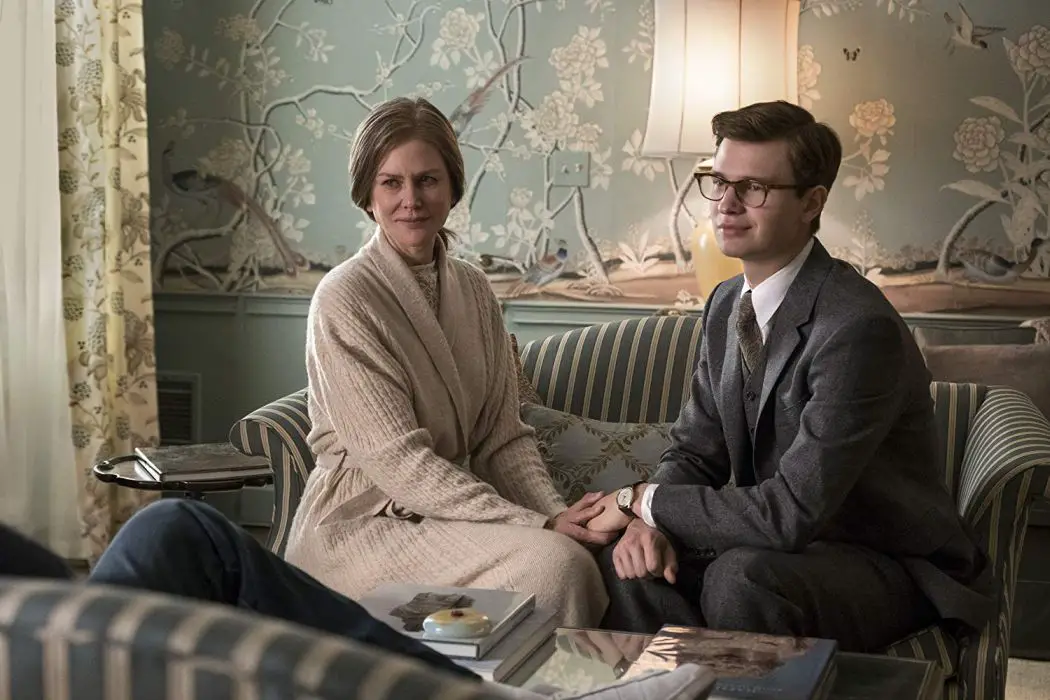TIFF 2019: THE GOLDFINCH Fails Donna Tartt

Monique Vigneault is a Mexican-Canadian film critic. She regularly covers…
The long awaited adaption to Donna Tartt’s Pulitzer Prize-winning The Goldfinch, directed by Academy-Award winning director John Crowley, premiered at TIFF yesterday, throwing film critics and writers everywhere into an undertow of frenzy.
I’m going to come clean straight away and say that my opinion is in itself contaminated. I’ve not only read The Goldfinch after its initial rapture in the literary underbelly, but I’ve re-read, underlined, gone back and relived this tale far too many times than I care to keep track of. Tartt’s story is deeply internalized in my own identity, it became one of the reasons I decidedly chose writing as a career. This puts the film adaptation to deeply unfair scrutiny.
The Goldfinch follows grief-stricken Theodore Decker (Ansel Elgort) as he trods through life carrying the weight of his mother’s tragic death at a terrorist attack in The Met. During the disaster, he clings to Carel Fabritius’ 17th century painting of the same name, and lugs it through each phase of his life alongside his grief. Theo hops from New York to Las Vegas, to Amsterdam, falling into a series of interpersonal and grand muddles along the way.
The Goldfinch fails its source material
The initial, inherent issue raised in the construction of a novel-to-film adaptation is that it’s often hard to transcend the literary flare and tone that’s natural to the writer, especially at great lengths. Therein lies the first impossible task in adapting The Goldfinch—condensing a sprawling 785 page epic, so rife with languorous, discombobulated inner monologues, scattered memories, diseased detail—it would set any director up to fall flat. Because, while the book has been hailed by critics, it’s also been equally disputed: Tartt’s novel is unquestionably an acquired taste.
What’s most surprising of Crowley’s The Goldfinch is that it unerringly fails its source material by stripping it of its most substantial, dreamy quality: the writing.

To be fair—Donna Tartt’s novel lacks the framework for the kind of movie that Warner Bros. is trying to market. This results in a film blankets away the gauzy, sinking undertones of loss that the protagonist and narrator, Theodore Decker, grapples with, all in the hopes that mainstream audiences will fall for a tear-jerking narrative.
Elevated by direction and cinematography
Crowley’s directorial style as exemplified in Brooklyn initially makes the possibility of the film somewhat hopeful, as his aesthetic and storytelling criterion lines up with the sort that’s a staple to Tartt’s writing. Crowley knows how to handle dramas, and he proved that with his 2014 period drama on homesickness. Alongside veteran cinematographer Roger Deakins the film stands a chance.
Deakins definitely holds up his end of the bargain, he does his best to embody the cinematic nuances of Tartt’s writing by setting the melancholic haze, but it’s all in vain when viewed alongside a shoddy screenplay. Not only that, but the cast is promising, ranging from the revered Nicole Kidman to the equally fantastic Sarah Paulson, who delivers the most perfectly kitsch, tacky performance of her career in the best way possible.
However, the Hollywood pandering becomes increasingly clear with the casting of up-and-coming Stranger Things star, Finn Wolfhard, and heartthrob Ansel Elgort. The choice to distinguish it as an A-List only event, mistakes the novel as the makings of a massively commercial narrative when it’s really not that at all. In reality, the novel passes through interminable chapters of bleakness, painfully artful passages which separate it as something too esoteric to be packaged in this way. Elgort himself works tirelessly to embody the clashing complexities of his flawed protagonist, but overall the screenplay is his performance’s plight.

The Goldfinch: Conclusion
However hard it tries, The Goldfinch plunks into a thicket of emptiness and it becomes increasingly clear as the film drags on without the emotional urgency that bleeds out of Tartt’s novel, that this is, above it all, limp Oscar-bait. The saddest truth of all is that this film strips away the brilliance of Tartt’s decade-long work with, ironically, it’s sloppy handling of what is, improbably, a work of art.
All in all, Crowley’s film reads less like a carefully constructed, cinematic tale of lasting grief and more like an empty blockbuster that falls right into the tired, empty conventions of a bad drama.
Will you catch The Goldfinch? Let us know in the comments down below.
Watch The Goldfinch
Does content like this matter to you?
Become a Member and support film journalism. Unlock access to all of Film Inquiry`s great articles. Join a community of like-minded readers who are passionate about cinema - get access to our private members Network, give back to independent filmmakers, and more.
Monique Vigneault is a Mexican-Canadian film critic. She regularly covers world cinema on the festival circuit.













